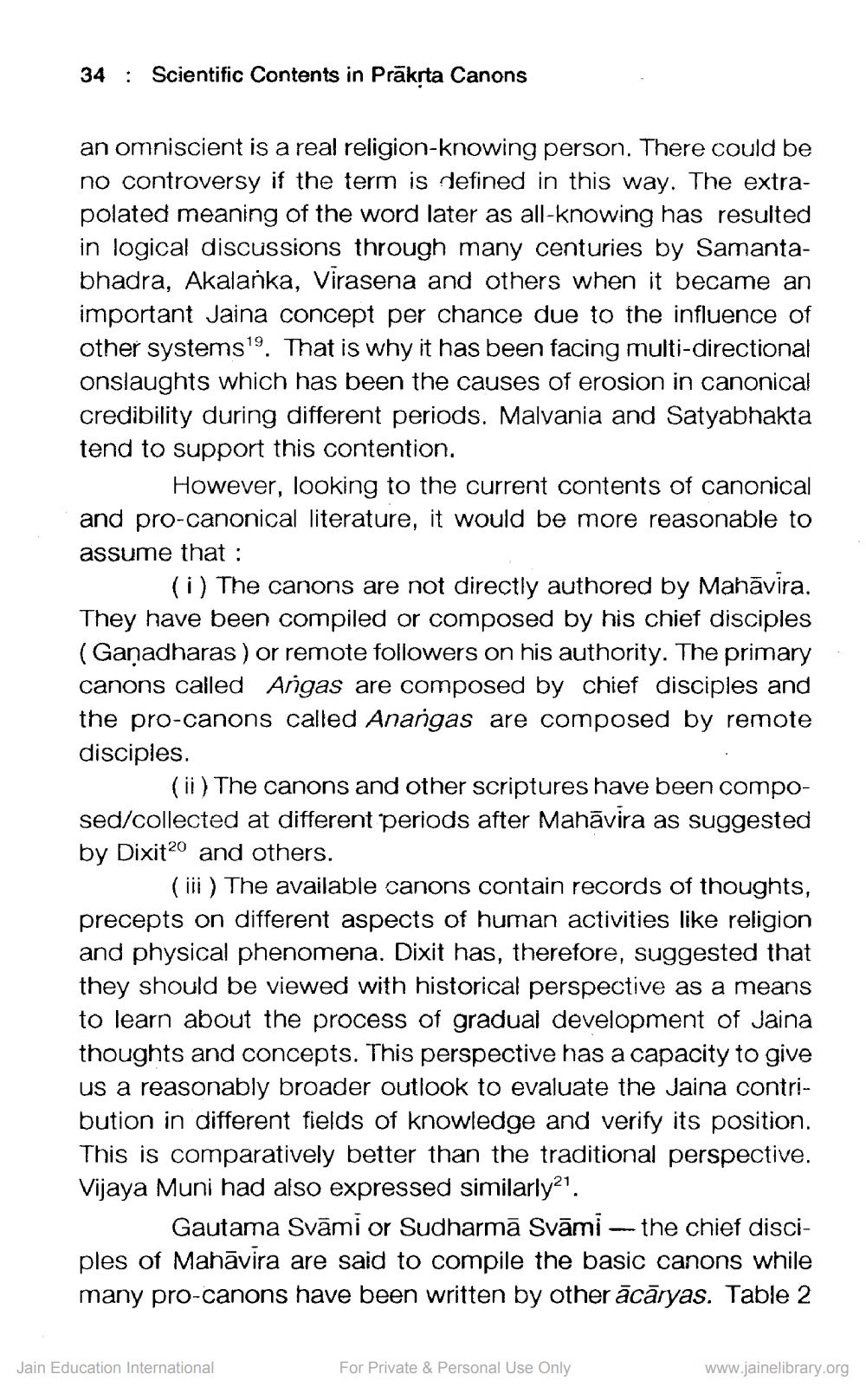________________
34 Scientific Contents in Prakṛta Canons
an omniscient is a real religion-knowing person. There could be no controversy if the term is defined in this way. The extrapolated meaning of the word later as all-knowing has resulted in logical discussions through many centuries by Samantabhadra, Akalanka, Virasena and others when it became an important Jaina concept per chance due to the influence of other systems 19. That is why it has been facing multi-directional onslaughts which has been the causes of erosion in canonical credibility during different periods. Malvania and Satyabhakta tend to support this contention.
However, looking to the current contents of canonical and pro-canonical literature, it would be more reasonable to assume that :
(i) The canons are not directly authored by Mahavira. They have been compiled or composed by his chief disciples (Gaṇadharas) or remote followers on his authority. The primary canons called Angas are composed by chief disciples and the pro-canons called Anangas are composed by remote disciples.
(ii) The canons and other scriptures have been composed/collected at different periods after Mahāvira as suggested by Dixit20 and others.
(iii) The available canons contain records of thoughts, precepts on different aspects of human activities like religion and physical phenomena. Dixit has, therefore, suggested that they should be viewed with historical perspective as a means to learn about the process of gradual development of Jaina thoughts and concepts. This perspective has a capacity to give us a reasonably broader outlook to evaluate the Jaina contribution in different fields of knowledge and verify its position. This is comparatively better than the traditional perspective. Vijaya Muni had also expressed similarly21.
Gautama Svāmi or Sudharmā Svāmi - the chief disciples of Mahāvira are said to compile the basic canons while many pro-canons have been written by other ācāryas. Table 2
Jain Education International
For Private & Personal Use Only
www.jainelibrary.org




